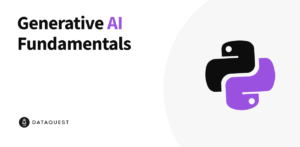I asked ChatGPT 3.5 this question. Below is the answer I got in 22.06 seconds and put a smile on my face much faster than that. And, yes, some of this falls into the “No shit, Sherlock” category, including the disclaimer: ChatGPT can make mistakes. Consider checking important information. At any rate, I give ChatGPT 3.5 a grade of “A” for the answer.
Shalom (שלום), MAA
THE ANSWER
While education agent aggregators can offer benefits in terms of connecting institutions with a network of agents and streamlining the recruitment process, there are also potential challenges and concerns associated with their use. Here are some problems or considerations related to education agent aggregators:
Quality Control:
Aggregators may face challenges in maintaining consistent quality among the agents in their network. Variability in the professionalism, ethics, and expertise of individual agents can impact the overall service quality.
Conflict of Interest:
Aggregators that have exclusive agreements with certain institutions may prioritize promoting those institutions over others. This could lead to a potential conflict of interest, as agents may be incentivized to promote specific schools regardless of their suitability for the student.
Lack of Personalized Service:
Working with an agent aggregator might result in a more standardized and less personalized service for students. Individualized guidance and support may be limited compared to working directly with an independent consultant or agent.
Transparency Issues:
Some education agent aggregators may lack transparency in their operations. It might be challenging for institutions and students to fully understand the selection criteria for agents in the network or the financial arrangements between the aggregator and the agents.
Ethical Concerns:
Ethical considerations may arise if agents within the aggregator network prioritize their financial interests over the best interests of the students. This could include steering students toward certain institutions or programs for financial gain.
Communication Challenges:
Communication challenges may arise between institutions, agents, and students due to the intermediary role of the aggregator. Miscommunication or a lack of direct communication channels could hinder the effectiveness of the overall recruitment process.
Dependence on Technology:
Some aggregators heavily rely on technology platforms for communication and coordination. Technical issues or cybersecurity concerns may impact the efficiency and security of the application and recruitment process.
Limited Local Knowledge:
Aggregators may lack in-depth local knowledge of specific regions or countries. This could affect their ability to provide nuanced guidance on cultural considerations, visa processes, and other local factors.
Risk of Fraud:
In some cases, there may be a risk of fraudulent practices within the agent network. Institutions and students need to be cautious and ensure that agents adhere to ethical and legal standards.
In addressing these concerns, institutions and students should conduct thorough due diligence when considering the use of education agent aggregators. This includes reviewing the aggregator’s reputation, understanding their selection and vetting processes for agents, and seeking transparency in financial arrangements. Additionally, maintaining open lines of communication and clear expectations is crucial for a successful partnership.
#Problems #Education #Agent #Aggregators




More Stories
On Celebrations and New Beginnings
Triumphs and Trials: A Teacher-Mother’s Journey with an International School Student – TIE BLOG : Teaching Your Way Around the World
Other Responses to “Culture of Silence” Article Inquiry